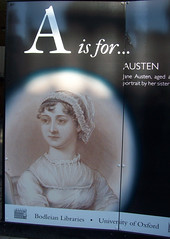Jane Austen died in 1817 before she could finish her novel The Brothers, later called Sanditon. In January and February, 2020, PBS’s Masterpiece aired Andrew Davies’ 2018 adaptation of Sanditon. This production features superb acting by Rose Williams as Charlotte Heywood, Theo James as Sidney Parker, Crystal Clarke as Georgiana Lambe, Charlotte Spencer as Esther Denham, Jack Fox as Edward Denham, Lily Sacofsky as Clara Brereton, Leo Suter as Young Stringer, Kris Marshall as Tom Parker, and the versatile veteran Anne Reid as the wily and cranky Lady Denham. Davies begins his adaptation of Sanditon with a situation similar to that in Pride and Prejudice: the heroine Charlotte and the hero Sidney misunderstand and offend one another. They gradually learn to appreciate each other. However, Davies’ script violates many important themes of Austen’s novels and incorporates some scenes that focus on male athleticism, which never appear in any other work of the famous English novelist and which disrupt the feminist perspective.
In various interviews broadcast after each episode, Davies brags that he can easily duplicate Austen’s dialogue, and he claims that what attracts men to women in her novels is sexual magnetism. Following his theory, Davies adds sexually explicit scenes to Sanditon, which Austen never would have sanctioned. Also, some of Davies’ dialogue seems transplanted from the twenty-first century, he does not understand Austen’s emphasis on her couples’ intellectual compatibility, and he completely misses the novelist’s disdain for mercenary marriages.
Austen’s novels center on the point of view of a young woman who has something to learn about herself and about other people. The narration is witty, and Austen often satirizes the obsessions and presumptions of her society. Davies captures some of Austen’s wit and satire, but he often has characters act more like people living in 2020 than in 1817. For example, he has Charlotte Heywood blurt out her problems to a stranger named Susan at a party in Sanditon. Such full disclosure never happens between strangers in Austen’s novels and rarely occurs even for close friends like Elizabeth Bennet and Charlotte Lucas in Pride and Prejudice. In another scene of Sanditon, Davies has Sidney Parker tell Charlotte Heywood, “I’m my best self when I’m with you.” Austen does not use such modern psychological dialogue in her fiction.
Davies’ adaptation of Sanditon has scenes that show the male characters competing in cricket and in rowing. No similar depictions of men’s athleticism appear in Austen’s other novels. Furthermore, such male-dominated scenes distract viewers from Austen’s consistent emphasis on women’s perspectives on life, love, and relationships.
While Austen’s protagonists like Elizabeth Bennet in Pride and Prejudice are popular, the novelist does not emphasize the women’s sexual magnetism. In fact, Austen stresses that Jane Bennet is the most beautiful of the five sisters. What attracts Fitzwilliam Darcy to Elizabeth is her intelligence and liveliness. Davies’ scenes in Sanditon with male nudity and sexual assault do not fit Austen’s focus on intellectual compatibility.
Also, Austen clearly does not approve of Charlotte Lucas’ marriage to Reverend Collins in Pride and Prejudice because Charlotte is so much more intelligent than her husband, whom she marries for economic security, not love. Austen herself never married and turned down a similar mercenary marriage proposal.
In contrast, Davies ends Sanditon with Sidney Parker suddenly engaged to Eliza Campion, a minor character who does not even appear in Austen’s original chapters. As portrayed by Davies’ script, Eliza is not particularly smart, and she has rudely emphasized that Charlotte is below Sidney’s and Eliza’s social class. Sidney apologizes to Charlotte for leaving her for Eliza and explains that he needs the widow’s wealth to sustain his family’s enterprise in Sanditon. Such a mercenary marriage for the male protagonist does not fit the pattern of Austen’s other novels.
Davies explains in an interview broadcast right after this final episode that he wanted a “realistic” ending for Sanditon. In the early 1800s, marriages outside of the rigid social class system in England were unusual, but such unions did occur. Austen’s novels highlight the importance for women and men to wed someone whom they love and who is an intellectual equal. Austen is probably rolling over in her grave in response to Davies’ insensitive adaptation of her novel.
Furthermore, Davies does not foreshadow Sidney’s sudden engagement to Eliza Campion. Also, the “ending” of season one of Sanditon leaves many other characters’ lives in suspense, especially the future of Charlotte’s friend Georgiana Lambe.
PBS did not trumpet the final episode of Sanditon in 2020 as the conclusion to the series. This makes it possible for Davies to write a new ending if Sanditon has a second television season in 2021. As a literary critic who loves Austen’s other novels, I hope for an extended run of Sanditon and for a new script writer who can do justice to Austen’s concern for women’s lives and choices.
Note: Andrew Davies also wrote the script for a television adaptation of George Eliot’s novel Middlemarch. My analysis of his misunderstanding of this feminist novel (George Eliot was the penname of Marianne Evans) was published in 1994: “Middlemarch on TV—A Symposium.” George Eliot–George Henry Lewes Studies Nos. 26-27 (1994): 43-47. This article is also available online at https://www.jstor.org/stable/42870840
